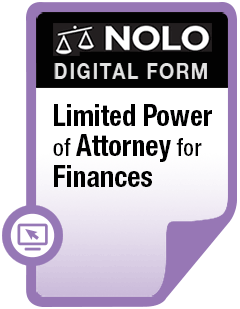What can I do if my gym closes? Learn about state cancellation laws, refund rights, and legal remedies for members.
Most health and fitness clubs impose months' long contracts with their members, with fees paid monthly or in lump sums. However, when you join a gym or health club, the last thing you expect is to lose access to the facilities you're paying for. But closures can happen for many reasons, including as financial difficulties, operational issues, legal or regulatory problems, or due to environmental or structural damage. When they do, members often wonder whether they have to keep paying fees, whether they're entitled to a refund, or how to cancel their contracts.
Targeted laws in some states address this question; in states lacking specific laws, more general consumer protection laws might apply.
- What Facilities Are Covered by Health Club Laws?
- State Laws Protecting Gym and Health Club Members
- Examples of State-Specific Health Club and Gym Laws
- What If Your State Doesn't Have a Health Club Law? Use Consumer Protection Statutes
- Using a Credit Card Chargeback to Dispute Gym Charges
- When Gyms Offer Pauses and Refunds Voluntarily
- When to Contact a Consumer Protection Attorney for Help
What Facilities Are Covered by Health Club Laws?
Laws that apply to gyms also typically apply to health spas, sports and health clubs, tennis clubs, racquet ball courts, golf clubs, gymnasiums, figure salons, health studios, weight control studios, and organizations that teach self-defense and martial arts. The laws usually don't apply to memberships of less than 30 days, massage establishments, and private clubs.
State Laws Protecting Gym and Health Club Members
Some states have specific laws aimed at stopping or remedying deceptive and unfair practices by health clubs and gyms, such as:
- false and misleading advertising
- excessively long contract terms (particularly lifetime contracts)
- automatic renewals
- unwanted financing, by requiring payments beyond the term of the contact,
- excessive initiation fees, and
- members' rights to cancel the contract.
The sections below look at cancellation rights in several of the states that have specific health club laws. Even if your state isn't mentioned below, it might have laws that apply to closed gyms and health clubs. Also, gym members who live in states without these kinds of laws aren't out of luck. Several garden-variety consumer protection laws, widely enacted in every state, might come to their assistance, as explained below.
States that have passed consumer-friendly health and gym facility laws provide for varying degrees of protection. Here are some examples of health club and gym laws in various states.
California Health Club Laws
California law clearly addresses the elimination or reduction of services. Members have the right to cancel if, "at any time during the term of the contract…the health studio eliminates or substantially reduces the scope of the facilities… that were described in the contract, in an advertisement relating to the specific location, or in a written offer, and available to the consumer upon execution of the contract… the consumer may cancel the contract and receive a pro rata refund." However, the consumer may not cancel the contract if the health studio, after giving reasonable notice to its members, temporarily takes facilities out of operation for reasonable repairs, modifications, substitutions, or improvements. (Cal. Civil Code § 1812.85(c) (2025).)
Moreover, members who pay large amounts upfront have the right to cancel for any reason within 20 and 45 days of signing their contracts. (Cal. Civil Code § 1812.85(d) (2025).)
Connecticut Gym Closure Protections
Connecticut addresses cessation of operations this way: "… if the health club ceases operation at the location where the buyer entered into the contract, the buyer … shall be relieved of any further obligation for payment under the contract not then due and owing." (Conn. Gen. Stat. §§ 21a-216 and following (2025).) A gym might argue that a temporary closure isn't a cessation of operations.
Illinois Cancellation Rights
Under its Physical Fitness Services Act, members have rights to cancel within three days of signing the contract, but the law doesn't address cancellation rights if the facility closes. Instead, "The customer's rights to cancel described herein are in addition to any other contract rights or remedies provided by law…." (815 Ill. Comp. Stat. § 645/6 and following (2025).) In other words, members need to look to their general consumer protection laws (see below).
Louisiana Health Club Contract Rules
The law in Louisiana gives members a right of cancellation in a roundabout way: The facility must give new members a written list of equipment and services. If any of these services are "materially changed," the member may cancel the contract. (La. Rev. Stat. § 51:1576 and following (2025).)
Massachusetts Refund Rights for Gym Members
Gym members in Massachusetts may cancel their contract "…if the health club services or facilities are not available to the buyer because the seller… substantially changes the operation of the health club or location. " (Mass. Gen. Laws ch. 93, § 80 and following (2025).)
New York's Three-Day Gym Cancellation Law and More
In New York, members may cancel "…after the services are no longer available or substantially available as provided in the contract because of the seller's permanent discontinuance of operation or substantial change in operation." (N.Y. Gen. Bus. Law §§ 620 and following (2025).)
New York law also allows customers to cancel their contracts without penalty up to three days after signing a contract. (N.Y. Gen. Bus. Law § 624 (2025).)
Pennsylvania Health Club Act: Temporary and Permanent Closures
The state's Health Club Act provides that if the facility temporarily closes for 30 days or less, members are entitled to an extension of their contract equal to the number of days of closure. For closures over 30 days, where the facility doesn't offer a comparable location within ten miles, members are entitled to a refund. (73 Pa. Cons. Stat. §§ 2161 and following (2025).)
If your state doesn't have a law covering health clubs, a general consumer protection law, like an unfair or deceptive acts or practices (UDAP) statute, might help you. UDAP laws, which are are state statutes of general applicability, ban deceptive practices in consumer transactions; they also usually prohibit unfair practices, and some forbid unconscionable acts. UDAP laws are very broad, and just about any unfair business practice is potentially a UDAP violation.
All states, as well as the District of Columbia, have UDAP statutes. This kind of law comes in various forms and has different names, but is usually called something like a:
- Consumer Protection Act
- Deceptive and Unfair Trade Practices Act (or Unfair Trade Practices Act)
- Consumer Sales Act (or Deceptive Consumer Sales Act)
- Deceptive Trade Practices Act, or
- Consumer Fraud Act.
How Unfair or Deceptive Business Practice Laws (UDAPs) Protect Members
When an unexpected event, like a closure, isn't covered under a health club law or the terms of a gym contract, a UDAP statute often offers a versatile remedy for wronged consumers. These laws usually provide strong relief, like the right to get multiple damages (or minimum damages) and attorneys' fees.
If a closed health club or gym charges your credit card, you can ask the credit card company to do a chargeback. You have two different ways to challenge charges for services you didn't receive: by asserting a claim or defense or filing a billing error dispute. (A charge for services you didn't get often counts as a "billing error.") Sometimes one way applies, sometimes the other, sometimes both. Each has different requirements and limits.
In either case, you'll need to notify the credit card company about your claim or dispute by sending a letter via certified mail or going online. If you mail a letter, be sure you send it to the address designated for this purpose; look on your statement, your credit card agreement, or online to get this information.
You won't have to pay that portion of your credit card bill while the dispute is pending. To keep the money, the gym will have to convince the credit card company that it's entitled to the funds—a tough argument to win.
When Gyms Offer Pauses and Refunds Voluntarily
If your gym is closed, check management's policy regarding refunds or cancellations. Many gyms offer membership pauses even when state law doesn't require it. These businesses are thinking of customer relations, and want to do all they can to make sure their member roster is full when they open again. Large chains, in particular, are better able to absorb the income loss resulting from paused member fees than small businesses.
When to Contact a Consumer Protection Attorney for Help
The office of the attorney general in each state is responsible for protecting consumers from unfair and deceptive practices. If your health club or gym closes and refuses to suspend your payments, give you a refund, or otherwise treats you unfairly, you can file a complaint with your state attorney general's office.
Keep in mind that if your gym refuses to pause payments, makes cancellation difficult, or denies a refund even after a prolonged closure, you don't have to handle it alone. A consumer protection attorney can explain which laws apply in your state, determine whether your rights were violated, and help you seek a refund or damages.
Talk to a Lawyer
Need a lawyer? Start here.
How it Works
- Briefly tell us about your case
- Provide your contact information
- Choose attorneys to contact you
- What Facilities Are Covered by Health Club Laws?
- State Laws Protecting Gym and Health Club Members
- Examples of State-Specific Health Club and Gym Laws
- What If Your State Doesn't Have a Health Club Law? Use Consumer Protection Statutes
- Using a Credit Card Chargeback to Dispute Gym Charges
- When Gyms Offer Pauses and Refunds Voluntarily
- When to Contact a Consumer Protection Attorney for Help
- Briefly tell us about your case
- Provide your contact information
- Choose attorneys to contact you



